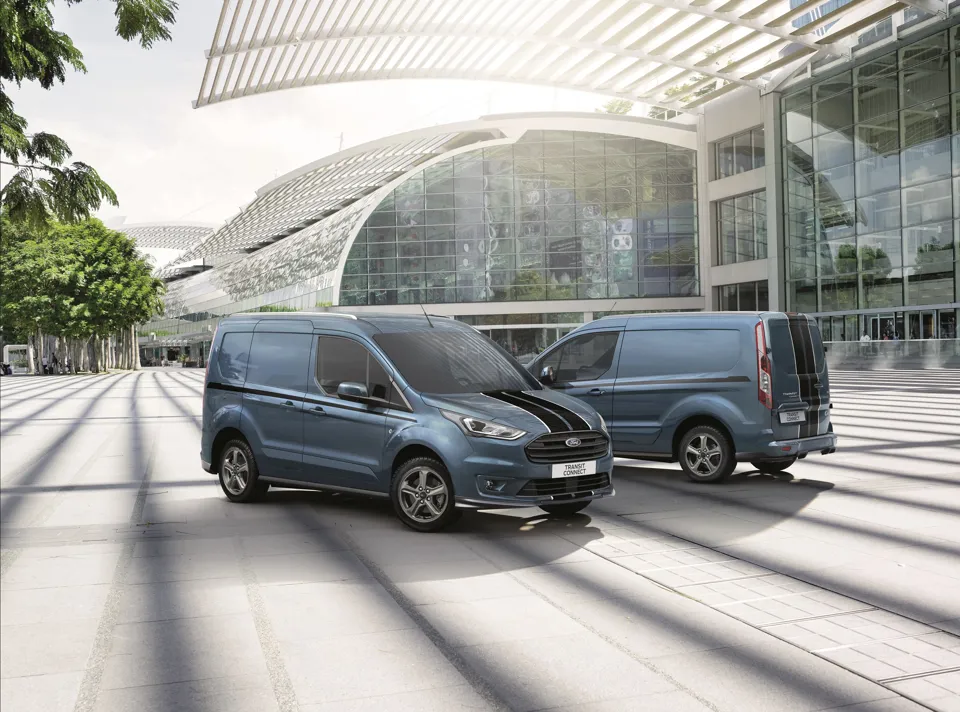Ford has unveiled a new Transit Connect van range which offers new engines and greater efficiency than its predecessor.
Transit Connect is now available with new 1.5-litre EcoBlue diesel engine and 1.0-litre EcoBoost petrol engine.
The 1.5-litre EcoBlue meets the latest Euro 6 emissions standards calculated using the World Harmonised Light Vehicle Test Procedure (WLTP).
It is available with three power outputs: 75PS with fuel efficiency from 60.1mpg and 124g/km of CO2; 100PS with fuel economy from 60.1mpg and 123g/km and 120PS delivering from 56.4mpg and 130g/km.
Ford engineering data based on a real-world driving cycle indicates that the 100PS vehicle achieves an improvement of up to 12% compared to the equivalent outgoing model.
The 1.0-litre EcoBoost petrol engine features optimised cylinder head, fuel injection and emission-control systems for enhanced fuel efficiency and CO2 efficiency.
It also introduces cylinder deactivation technology to the Transit range for the first time, helping achieve fuel efficiency from 44.1mpg and CO2 emissions from 146g/km.
Ford engineering data shows an improvement for up to 5% for the 1.0-litre EcoBoost petrol engine models over the equivalent outgoing model.
A six-speed manual transmission is standard for all engines, while an eight-speed automatic is now available for the 100PS and 120PS 1.5-litre EcoBlue engine variants.
Short and long wheelbase options provide load volumes up to 3.6 cu m, payload capacity ranges from 410kg to 900kg, and body styles include van, kombi and double-cab-in-van.
Transit Connect is also now available in Sportvan trim, with exterior styling kit, signature bonnet stripes and dark stainless alloy wheels.
The revised Transit Courier also features an updated powertrain line-up meeting Euro 6 emissions standards calculated using WLTP.
It is available with a 1.5‑litre TDCi diesel engine, now with 75PS or 100PS, and delivering from 65.6mpg fuel efficiency and 112g/km CO2; or a 100PS 1.0-litre EcoBoost engine delivering from 53.2mpg and 119g/km CO2.
A new six-speed manual transmission replaces the previous five-speed offering.




















Login to comment
Comments
No comments have been made yet.